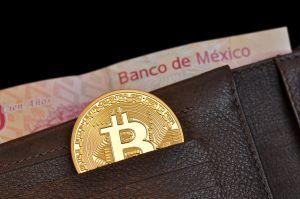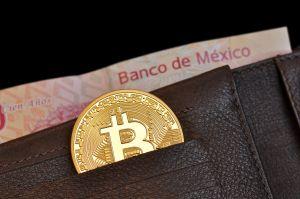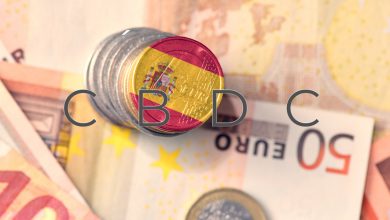
blockchain News
Bitso Says 5% of U.S.-Mexico Remittances Made in Crypto + More News

Crypto Briefs is your daily, bite-sized digest of cryptocurrency and blockchain-related news – investigating the stories flying under the radar of today’s crypto news.
Adoption news
- The CEO of Mexican cryptocurrency exchange Bitso claims that some 5% of remittances sent from the United States to Mexico have been processed in cryptocurrencies so far this year. Per Entrepreneur, Daniel Vogel, co-founder of Bitso, told media outlets that cross-border Bitcoin and altcoin remittances are on the rise, with a weekly growth rate of 15%, hitting USD 28,000 per week.
- Blockchain-based energy trading software company Power Ledger (PWR) said that it has secured its first commercial deployment for its peer-to-peer platform in Canberra. In partnership with an Australian commercial renewable energy company EPC Solar Group, Power Ledger’s software will be installed at a commercial site tenanted by window supplier, Dowell Windows, whereby three parties will trade excess solar energy between one another at a single site through a shared photovoltaic system and battery. This will help customers save on their energy costs and decrease consumption from fossil fuel sources, the company said.
- The European Central Bank (ECB) and other central banks are looking into the potential benefits and costs of digital currencies over the existing financial system, said Benoît Cœuré, Member of the Executive Board of the ECB, at the Joint Conference of the ECB and the National Bank of Belgium earlier this week. He added that a digital currency could take a variety of forms.
- Regional authorities in Argentina’s Rio Negro province are set to pilot a blockchain-powered lottery program next year. Per media outlet Criptomonedas e ICO, Rio Negro wants to “boost transparency” in its lottery operations. The province has not specified exactly when it will begin its pilot or what type of blockchain platform it intends to use, but said it hopes to boost public confidence in the lottery, and the province’s ability to handle sensitive data.
- The CEO of South Korean travel platform Yanolja has spoken out about his company’s blockchain business plans. Per Decenter, the CEO states Yonolja and its tech partners are looking at blockchain solutions that could be implemented to speed up hotel check-in services, creating blockchain-powered, unmanned check-in kiosks that allow guests to do away with paper- and card-based ID verification systems.
- South Korean blockchain developer Coinplug has revealed details of its government-backed blockchain-powered ID authentication platform plans. Per EToday, the company is hoping to use the ID verification platform to develop solutions that will help prevent electronic financial accidents, and is looking at possible smart city development integration.
- Finablr, the holding company for money transfer company UAE Exchange that is a partner with Ripple (XRP), said it has now partnered with Chinese payments giant Alipay. According to Finablr, this partnership for cross-border remittance “will bring more convenient and inclusive services to consumers around the world.”
- Blockchain will enable USD 31 billion in food fraud savings globally by 2024 by immutably tracking food across the supply chain, a new study from Juniper Research found. Substantial savings in food fraud will be realized from 2021 and compliance costs will be reduced by 30% by 2024. The report said that blockchain, as well as internet of things trackers and sensors, will help to decrease costs for retailers through the streamlining of supply chains, efficient food recall processes, and simpler regulatory compliance.
- Major international bank HSBC plans to move USD 20 billion worth of assets to a new blockchain-based custody platform, Digital Vault, by March. The platform will give investors real-time access to records of securities bought on private markets, and the bank “seeks to capitalize on booming interest in such investments by yield-hungry investors,” Reuters reports, citing HSBC.
- Online payments and money transfer service Skrill enabled their customers to use bitcoin to buy other cryptocurrencies through their Skrill Cryptocurrency Service. The company said that their customers no longer have to convert their interests in one cryptocurrency back into fiat currencies before purchasing an interest in a new cryptocurrency, resulting in fewer transactions and lower fees.
- Saudi Arabia and the United Arab Emirates (UAE) plan to launch joint digital currency, The National reported, adding that that Saudi Crown Prince Mohammed bin Salman Al Saud met with Sheikh Mohammed bin Zayed, Crown Prince of Abu Dhabi and Deputy Supreme Commander of the Armed Forces in the UAE, where they will be discussing the digital currency plan.
Regulation news
- Swiss Parliament is set to discuss the set of proposals on further improvements of framework conditions for DLT (Distributed Ledger Technology)/blockchain, as presented by the government. Proposed updates to the banking, corporate and financial infrastructure laws to accommodate DLT have been welcomed by Switzerland’s growing blockchain industry, Swissinfo writes.
- Indian government is working on the draft of an approach paper on the National Level Blockchain Framework. Minister of State for Electronics and Information Technology, Shri Sanjay Dhotre, said in a letter on use of blockchain technology that the paper discusses the potential for distributed ledger technology and the need for a shared infrastructure for different use cases.
Exchanges news
- The USD 51.7 million-worth of Ethereum (ETH), stolen from cryptocurrency exchange Upbit is being transferred by the thief in ETH 10 to ETH 100,000 lots. The wallet shows that these transactions are for the same small amount of 0.00001337 ETH, whereby the hacker is using “1337” that in an informal language/code known as “leetspeek” means “elite” – often used by those defining themselves as “elite hackers.”
- Japan’s financial regulator the Financial Services Agency (FSA) has granted tech firm LastRoots a crypto exchange operating license for its c0ban platform, reports media outlet Crypto Watch. The platform will become the 21st FSA-licensed exchange under the terms of a law that came into force in 2017. The FSA is still working its way through a large backlog of applications, and the self-regulating Japanese Virtual Currency Exchange Association has also developed a second-tier membership level, comprising of platforms currently seeking FSA approval. LastRoots received a funding boost of an undisclosed amount from the crypto-keen SBI Holdings financial group in August this year.
- Per the patent issued by the U.S Patent and Trademark Office, Coinbase patented a self-learning compliance determination and enforcement platform. It is an automated system with a scoring mechanism that gives compliance scores based on a number of factors, based upon which user accounts suspected of illegal activity would be closed.
- Poloniex acquired TRXMarket, now named Poloni DEX, which was the “largest decentralized exchange” in the Tron (TRX) ecosystem, said Poloniex. Poloni DEX will operate under the umbrella of Poloniex, and during the upgrade process, platform functions and user experience will remain unaffected. Justin Sun, CEO of Tron, recently admitted that he is indeed an investor in Poloniex.
Source: cryptonews.com
View original post





